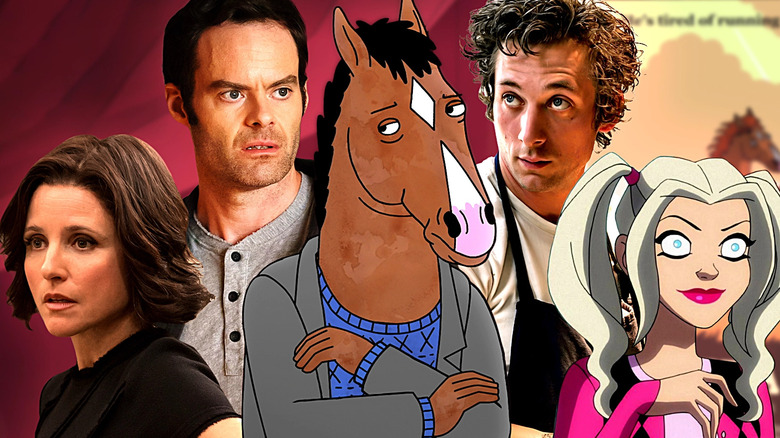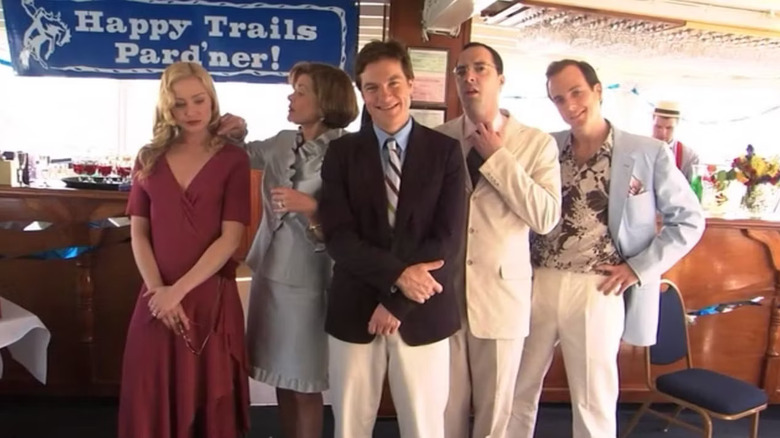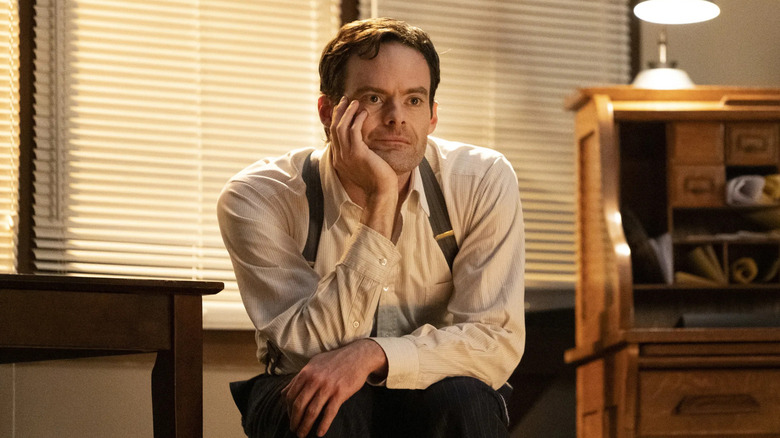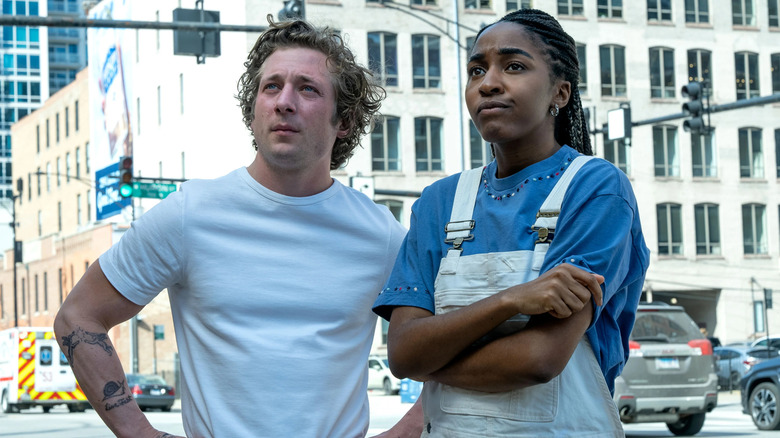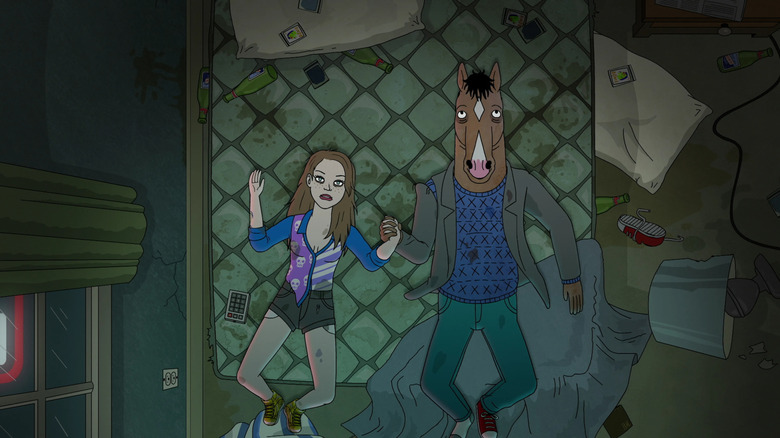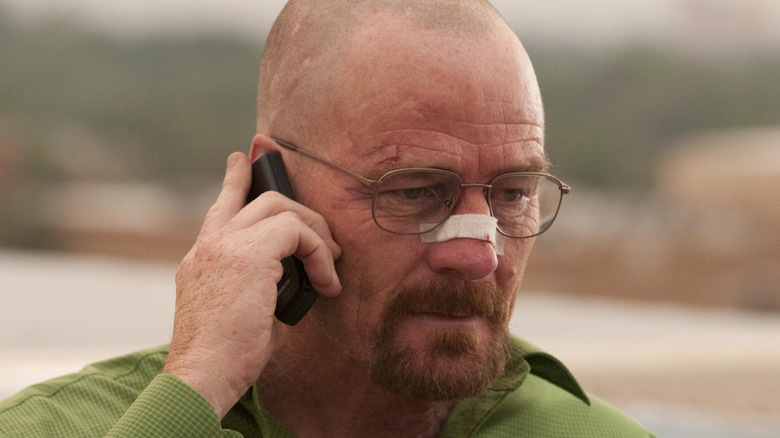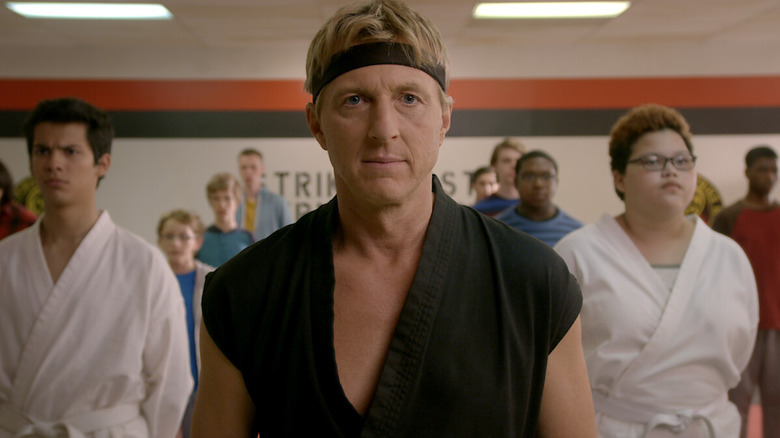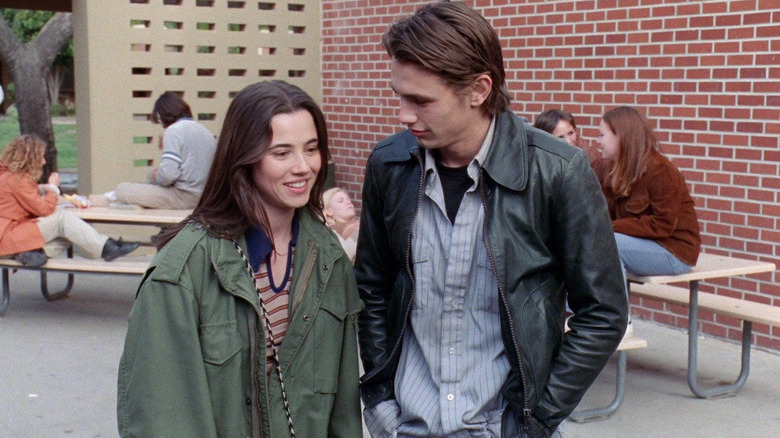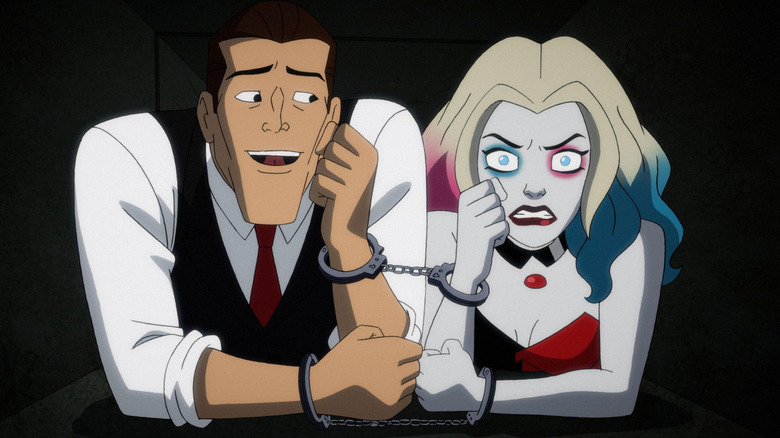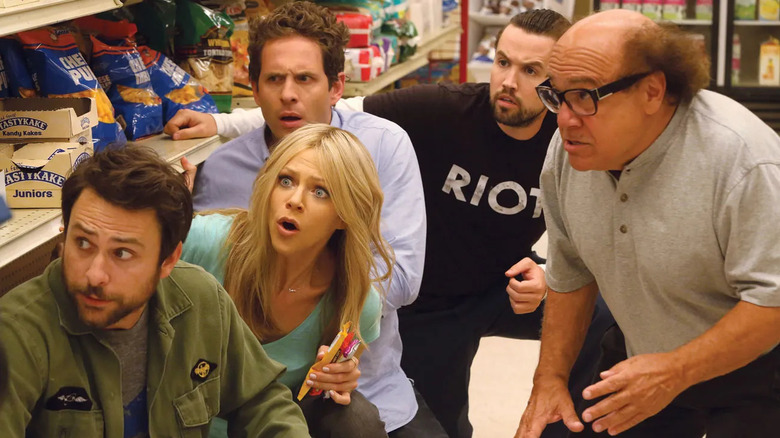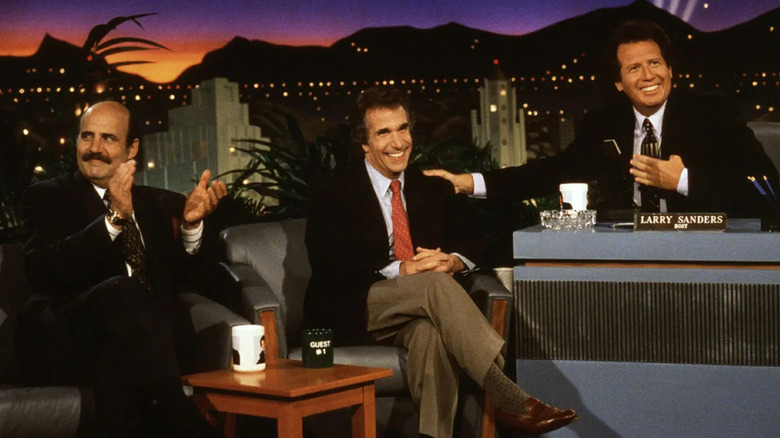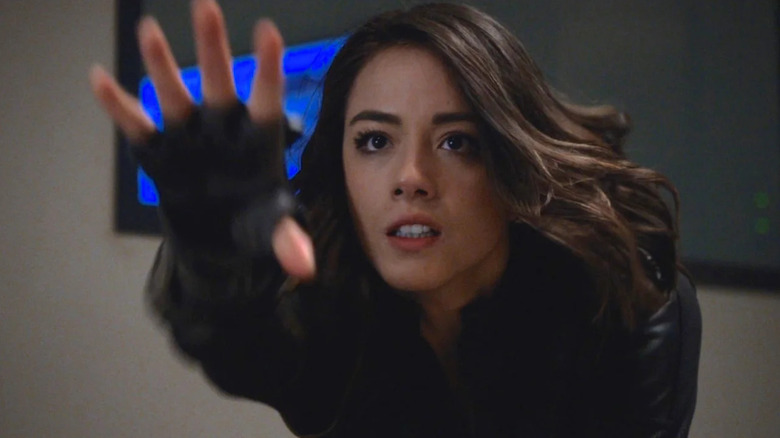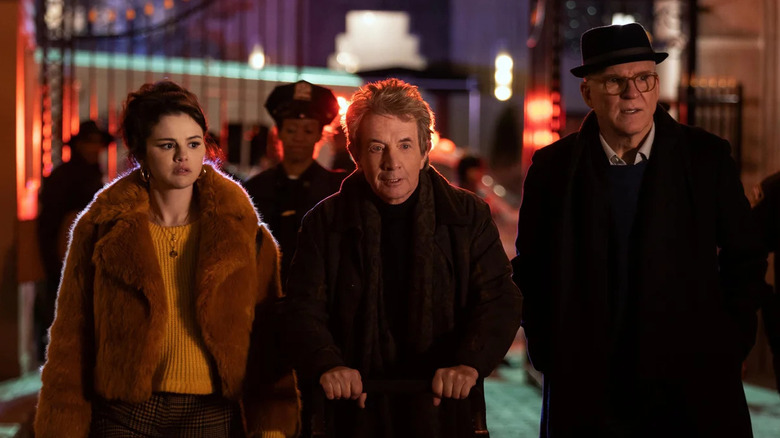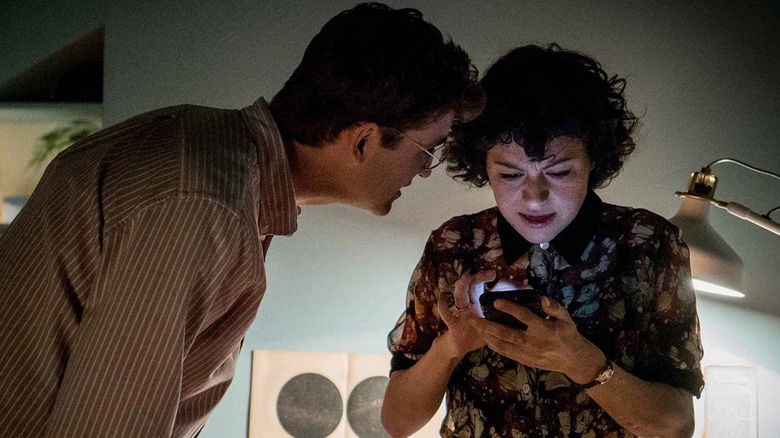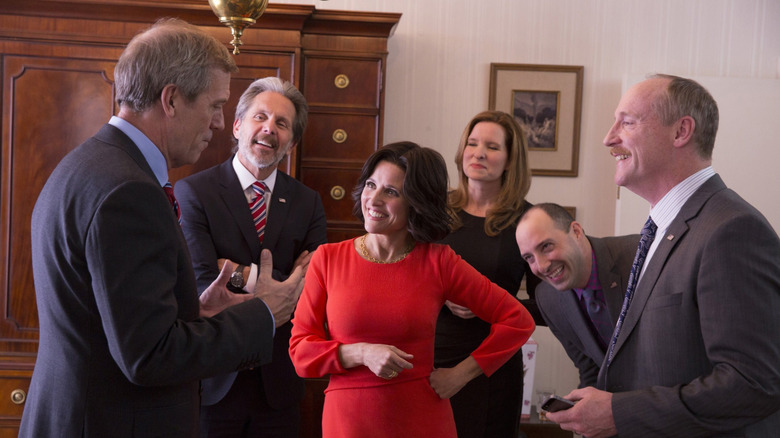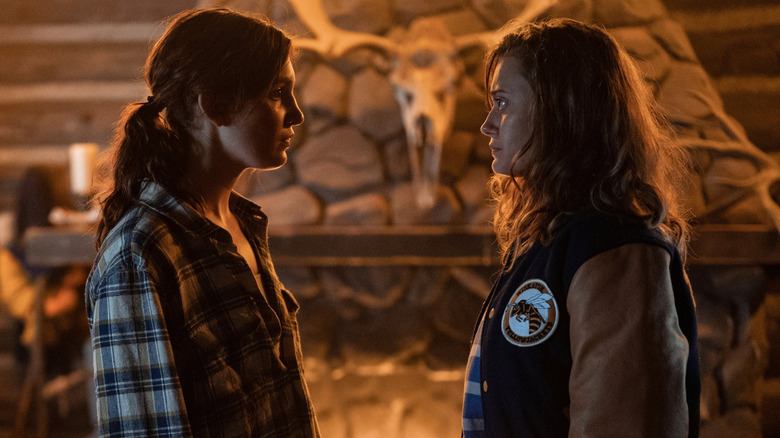15 Perfect Seasons Of TV, According To Rotten Tomatoes
Oh, Rotten Tomatoes. Love it or hate it, the site has played an instrumental role in helping films and television shows market their mass appeal in clear terms. And while a high score (especially in the age of franchises, AI, and studio control) may signify a soulless flattening of art to court the most eyeballs possible, a perfect 100% score remains a rare badge of honor.
To appeal to the totality of critics across the ever-broadening spectrum that is the critical community (now inclusive of everyone from traditional journalists to powerful voices on social media), a show must be worth your attention for some reason. We certainly found that to be true when revisiting these 15 "perfect" seasons of TV (according to Rotten Tomatoes).
Arrested Development - Season 1
And now the story of a wealthy family who lost everything. After being unexpectedly passed over for a promotion to CEO of the family real estate business, Michael Bluth (Jason Bateman) is ready to finally move beyond his parents' shadows and say goodbye to his selfish brothers and sister for good. Unfortunately for him, this fantasy is cut short by the sudden arrest of his father, George Bluth Sr. (Jeffrey Tambor).
As the only responsible member of his family, Michael must keep the Bluth Company afloat while dealing with his cruel mother Lucille (the late Jessica Walter), buffoonish older brother G.O.B. (Will Arnett), narcissistic sister Lindsay (Portia de Rossi), and helpless baby brother Buster (Tony Hale), all the while raising his socially awkward son George Michael (Michael Cera).
The first season of "Arrested Development" introduces us to some of the most laughably terrible TV characters the world had seen up to that point. We see the Bluth brothers fight over a telenovela star, the whirlwind romance between prosecutor Maggie Lizer (recurring guest star Julia Louis-Dreyfus) and maritime lawyer "Chareth Cutestory," the release of analyst-therapist Tobias Fünke's seminal work "The Man Inside Me," and, of course, the not-so-magical sinking of the family yacht.
Barry - Season 2
Season 2 of "Barry" picks up soon after the devastating finale of its first outing. Having murdered the girlfriend of his friend and mentor Gene Cousineau (Henry Winkler), hitman-turned-aspiring actor Barry Berkman (series co-creator Bill Hader) is starting to realize that he may not be able to leave his violent life fully behind him. His denial of this leads him into many dark and darkly hilarious situations (including a near-fatal encounter with a taekwondo master and his daughter) and turns old friends into potentially deadly enemies.
The sophomore season of "Barry" also widens its narrative focus by giving challenging, thematically relevant storylines to its supporting ensemble. In the criminal underworld, lovable Chechen mobster NoHo Hank (Anthony Carrigan) struggles to balance his own career aspirations with those of his boyfriend Cristobal (a Bolivian drug kingpin, played by Michael Irby). This is especially true when he tries to introduce a third into their dynamic in the form of the infamous Burmese gangster Esther (Patricia Fa'asua). Sally (Sarah Goldberg), meanwhile, wrestles with truth in her own life as professional success seemingly demands personal authenticity — or, at least, the Hollywood version of it.
The Bear - Season 1
Managing to pack in more laughs and heartbreaks into a single, eight-episode season than many shows can in their entire run, season 1 of "The Bear" turned the half-hour format into a perfect serving dish for dramedy storytelling. It begins in the heat of Michelin-star chef Carmen "Carmy" Berzatto's (Jeremy Allen White, in a star-making role) return to his late brother's struggling Chicago sandwich shop, which he intends to turn into a more serious restaurant with the help of recent culinary school graduate Sydney (Ayo Edebiri).
As character-driven as a series can be, "The Bear" immediately creates a character web so rich that exploration of any part of the ensemble serves to carry Carmy's central arc in season 1 forward. Through his collaboration with Sydney, we see the benefits and serious drawbacks of his dedication to his craft; through his loving but fiery relationship with his "cousin" Richie (Ebon Moss-Bachrach), we start to get a sense of how the environment he grew up in informs the choices he makes now. By the time episode 7, "Review," came along, there was no mistaking "The Bear" for anything other than an instant masterpiece.
BoJack Horseman - Season 3
In contrast to "The Bear," "BoJack Horseman" took a second to get its feet (or hooves?) off the ground. Its first season received infamously mixed reviews, in large part because critics were only given the first six episodes to binge. It wasn't until the latter half of the season that "BoJack" had room to start evolving from a middling adult-animation comedy about a washed-up actor who happens to be a talking horse to a deeply unsettling dramedy about mental health, fame, and guilt. By the time its second season rolled around, critics were on board — it received a 100% certified fresh rating on Rotten Tomatoes.
For this list, however, we've chosen to focus on season 3, not least of all because it's incredibly rare for any series to receive a perfect score immediately after their first. More than that, it may just be the best season overall of "BoJack Horseman." It largely follows BoJack's (Will Arnett) Oscars campaign for Best Actor, as he imagines an Academy Award will give his life the meaning he's desperately been searching for (spoiler alert, it obviously doesn't). As funny and subversive as it is emotionally gutting, "BoJack Horseman" season 3 is arguably the season that it cemented itself as one of the best Netflix series of all time.
Breaking Bad - Season 4
Despite receiving universal acclaim (and a 100% Rotten Tomatoes score) for their third season, the "Breaking Bad" creative team went into season 4 expecting to get canceled. In this mindset, they wrote and shot a breathless season of television so explosively apocalyptic that it was arguably impossible to outdo going forward.
It picks up right after the unbelievably tragic gunshot heard at the end of season 3, where Walter White (Bryan Cranston) and Jesse Pinkman (Aaron Paul) have forced their ruthless employer Gus Fring (Giancarlo Esposito) into an impossible position. In a comprehensive exploration of control, narcissism, and greed, the season thus follows Gus' attempts to exploit the growing divide between Walt and Jesse, as the former becomes more intoxicated by his need for power and the latter becomes wary of the lasting effects of their criminal lifestyle. The 13 episodes of carefully crafted psychological warfare conclude with one of, if not the, greatest season finales of all time ("Face Off") in which the larger cartel storyline is brought to a spectacular and cathartic end.
Cobra Kai - Season 1
These days, a legacy sequel TV series spun off from a nostalgic product like "The Karate Kid" would seem like a predictable, cynical cash grab. Maybe it already did, to some extent back in 2018 — which only made season 1 of "Cobra Kai" all the more surprising.
Sent to die on the promising but frustratingly underdeveloped YouTube Red "streaming platform," "Cobra Kai" at first seemed indistinguishable from the rest of the low-effort teen content being churned out in a misguided attempt to compete with Netflix and Hulu. This couldn't be further from the truth.
William Zabka reprises his role as the brutally-trained teenage karate bully Johnny Lawrence from the original "Karate Kid" film, now a burn-out in his 50s trying to get by. He finds his passion reignited when a group of teenage outcasts (including future "Blue Beetle" star Xolo Maridueña) come to him for karate training. At the same time, the resurgence of the controversial Cobra Kai dojo compels none other than Daniel LaRusso (Ralph Macchio) to emerge from retirement to stop his old enemy. Funny, challenging, and full of top-notch fight choreography, "Cobra Kai" turns "The Karate Kid" mythos on its head with smashing results.
Freaks and Geeks -- Season 1
It's not as rare as you'd hope for a series to receive near-universal acclaim only to be unceremoniously canceled. The most infamous example of this from the sitcom genre is undoubtedly "Freaks and Geeks."
Created by Paul Feig, the NBC series followed two rival groups of kids at a local high school. In many ways, the deceptively simple teen comedy became a Rosetta Stone for a dominant comedic style that prevailed in the late-2000s and 2010s. It was, after all, arguably responsible for the careers of some of the most well-known actors and comedic writers of the time period, as the core ensemble included Linda Cardellini, John Francis Daley, James Franco, Seth Rogen, and Jason Segel.
Unfortunately, "Freaks and Geeks" was never popular when it was airing due to poor time slot management on NBC's part. Its single season is amusing nonetheless and contains strong early performances from several contemporary favorites.
Harley Quinn - Season 2
As much as we love "The Boys" and "Invincible," "Harley Quinn" may be the best deconstruction of the superhero genre we've ever seen. The adult animated series (set in a somewhat canonically nebulous parallel DC Comics universe somewhat adjacent to both "Batman: The Animated Series" and the DC Extended Universe) follows the titular baddie (voiced by Kaley Cuoco) as she searches for her own identity in the aftermath of yet another cruel breakup with the Joker (Alan Tudyk). Throughout the first season, she forms her own group of supervillains including her longtime best friend Ivy (voiced by Lake Bell), the dramatic aspiring thespian Clayface (Tudyk), the hilariously normal King Shark (Ron Funches), and the sexist, oft-cancelled Doctor Psycho (Tony Hale).
But what makes "Harley Quinn" so special is its willingness to upset its own status quo, leading to moments unlike anything you've ever seen or perhaps will ever see in a DC project — we're not just talking gags, but irrevocable narrative twists that challenge what you think about these characters. Without spoiling too much, the second season picks up with Harley reckoning with her complicated friendship with Ivy and building her own empire from the ashes of Gotham. It also sets up a stellar third season, which received a 100% score on Rotten Tomatoes as well.
It's Always Sunny in Philadelphia - Season 9
With FX leaving the threat of cancellation hanging over their heads, the creators and stars of their absurdly successful comedy series "It's Always Sunny in Philadelphia" wanted to leave nothing on the table heading into season 9. The result is perhaps the series' most iconic outing, with several pitch-perfect episodes that created lasting moments of comedy while subtly reflecting on everything that came before.
The season opens with a more realistic look at the characters' treatment of Kaitlin Olson's Dee Reynolds in "The Gang Broke Dee," interrogating and arguably even corrupting one of the show's core running gags; "Mac Day" and "Flowers for Charlie" similarly examine the lives of Mac (Rob McElhenney) and Charlie (Charlie Day) with more empathy; meanwhile, "Gun Fever Too: Still Hot" serves as a sequel to a classic episode that also comments on the depressingly cyclical nature of the gun debate in America (it also gave birth to the "blasting" Frank Reynolds meme); there's also the formally subversive episodes "The Gang Saves the Day" and "The Gang Makes Lethal Weapon 6."
The crown jewel of season 9, however, is the rapturously meta "The Gang Tries Desperately to Win an Award." It's an episode as genius as it is hilariously bitter, encapsulating the best qualities of the series overall — the fact that it aired as part of their first "perfect" season is just icing on the cake.
The Larry Sanders Show - Season 1
Despite being one of the best HBO shows of all time, there's a chance some readers might be less familiar with "The Larry Sanders Show." The sitcom starred Garry Shandling and the titular fictional late-night talk show host, whose personal and professional lives would often mix in the most hectic ways.
Much of the first season is dedicated to setting up the world of the show, including Larry's tense relationship with much of the entertainment industry. He has issues with the network, which pressures him to increase his show's financial viability by appealing to younger audiences or accepting shady brand deals. The show also focuses on Larry's interactions with talented but selfish up-and-coming comedians like David Spade and Dana Carvey (starring as fictionalized versions of themselves), his wife (Megan Gallagher), and his put-upon sidekick Hank (Jeffrey Tambor). The series' meta and chaotic sense of humor makes it just as enjoyable now as it surely was when it first aired.
Marvel's Agents of S.H.I.E.L.D. - Season 3
Perhaps the most surprising entry on this list, the dwindling fans of the Marvel Cinematic Universe may have forgotten about what was once their flagship television project — the ABC series "Agents of S.H.I.E.L.D." Originally (and improbably) meant to tie directly into the plot and release schedule of the MCU films in real-time, the show was quickly forced to chart its own course for the better.
By season 3, the series was almost entirely focused on growing the nascent Inhumans storyline, which (though it ultimately resulted in the disastrous "Inhumans" TV series) wound up giving "Agents of S.H.I.E.L.D." the room it needed to take risks, introduce more superhero-ey characters, and up the stakes and spectacle overall. It may not have been able to maintain this level of quality as things went forward, but the season itself is undeniably impressive in isolation.
Only Murders in the Building - Season 1
Like "The Bear," "Succession," and "Severance," the first season of Hulu's "Only Murders in the Building" helped further illuminate what the landscape of television would look like heading deeper into the 2020s. In addition to the newly-reaffirmed trippy sci-fi drama and corporate thriller, the latter series essentially translated the cozy, low-stress, good-vibes mystery from the pages of a paperback novel into the medium of bingeable TV.
Steve Martin, Martin Short, and Selena Gomez star as New York City apartment dwellers who become obsessed with a murder in their historic apartment building. Though the stakes are indeed life-or-death, "Only Murders" uses its affable cast and bright, comedic writing style to deliver a breezy yet mentally stimulating adventure that thrills you just enough – at least until its jaw-dropping season 1 finale.
Search Party - Season 1
In contrast to the cozy mystery of "Only Murders in the Building," the first season of "Search Party" explores the viral fascination with true crime through a much darker and more skeptical lens. "Arrested Development" alum Alia Shawkat stars as Dory Sief, an aimless New York millennial who becomes obsessed with the apparent disappearance of her acquaintance Chantal Witherbottom (Clare McNulty).
As she drags her friends (a tight ensemble that includes the grossly underrated talents of John Reynolds, John Early, and Meredith Hagner) down the rabbit hole with her, they find their lives imbued with a new sense of adventure, responsibility, and purpose that had previously been missing — only to ultimately be confronted with the consequences of their actions on their rash journey to find Chantal. The first season is the most conventional (fans remember "Search Party" fondly for essentially changing genres each season), but the simple format explores complicated ideas about identity and accountability that are still hard to shake.
Veep - Season 4
The fourth installment of Armando Iannucci's brilliant send-up of idealistic political dramas like "The West Wing" turned out to be its most prescient, as "Veep" season 4 presents a depressingly simple vision of contemporary Washington politics that mostly turned out to be true. With Selina Meyer (Julia Louis-Dreyfus) now the first female president of the United States, she now has the power to make the change she's always talked about.nfortunately, she still lacks the courage and moral clarity to actually get anything done.
With Selina detrimentally preoccupied with her actual presidential campaign, the highlights from her brief tenure in the White House in season 4 include carelessly funding defunct weapons programs over social safety nets, misusing data to target grieving families with campaign ads, firing and replacing her own Veep during the Democratic National Convention, and failing to win the presidency. The fourth season of "Veep" is a distressing but relentlessly funny indictment of political ego that feels even more relevant now than it did in 2015.
Yellowjackets - Season 1
Before it aired in 2021, it's hard to imagine anyone predicted Showtime's "Yellowjackets" becoming the breakaway hit that it did. The series – handily rejected by executives at HBO — might seem on paper like a bizarre, incongruous amalgamation of CW teen drama and a hyper-violent prestige horror-thriller. It would be easy for anyone to look at the story and wonder who the target audience was.
Apparently, the target audience was anyone who enjoyed good TV, as "Yellowjackets" debuted to a 100% rating on Rotten Tomatoes. The first season jumps between timelines to follow two equally arresting stories. In 1996, a high school girls' soccer team gets stranded on a (seemingly) deserted island when their private jet crashes, killing the pilot and their coach and leaving the teenagers to fend for themselves in the wilderness; in the present, the now-adult survivors of the wilderness (including Melanie Lynskey, Tawny Cypress, Christina Ricci, and Juliette Lewis) try to protect the fragile normalcy of their lives as various entities — such as an investigative journalist and a mysterious blackmailer — threaten to expose the unknown truth of what the girls did to one another while they were lost for almost two years.
In addition to balancing elements of horror, thrilling plot twists, and dark character studies with the necessary elements of a coming-of-age story, "Yellowjackets" season 1 tells a complete story on its own. If there's one thing each entry on this list shares, it's this approach to seasonal storytelling that makes the series overall more impactful, memorable, and satisfying for viewers.
